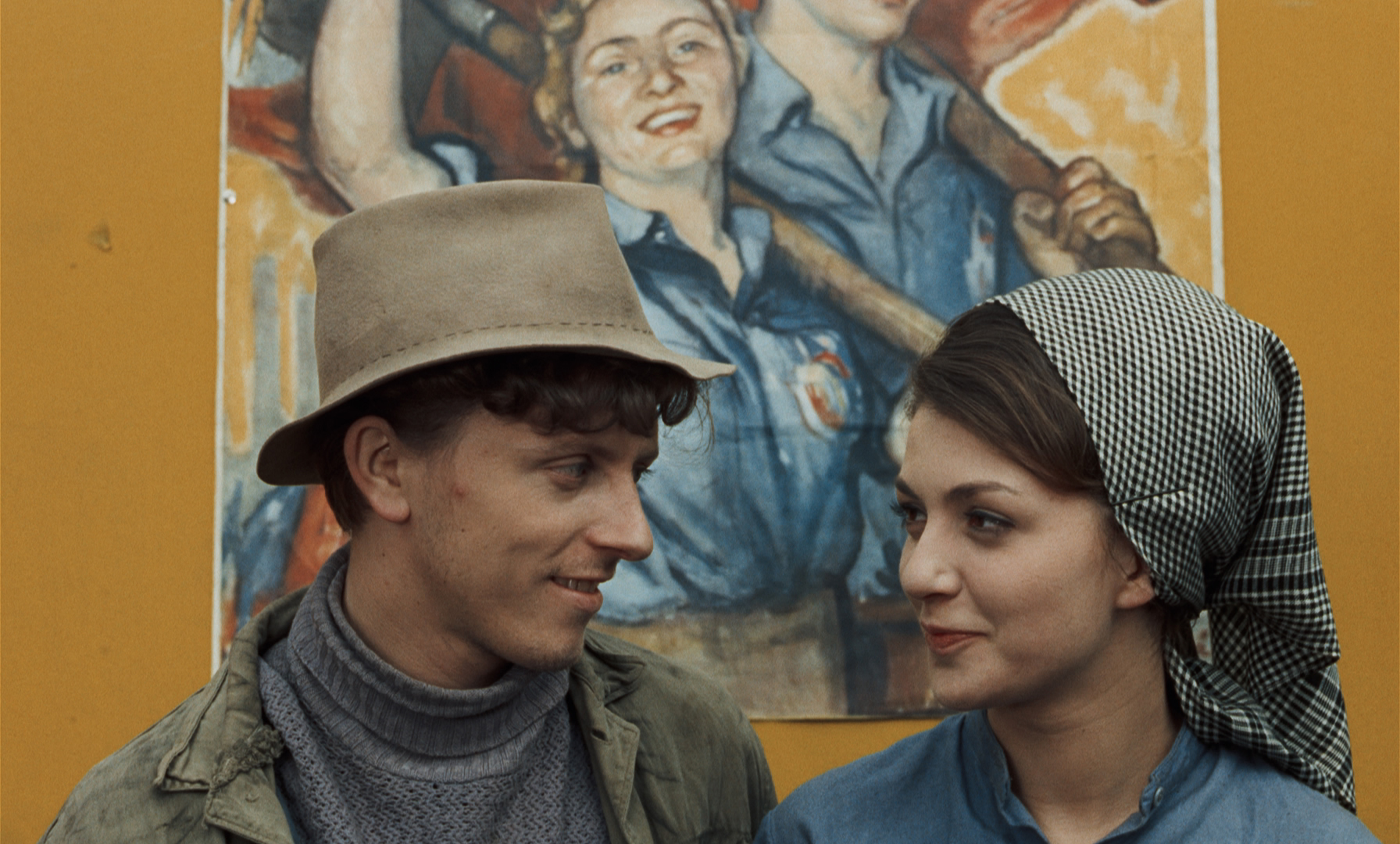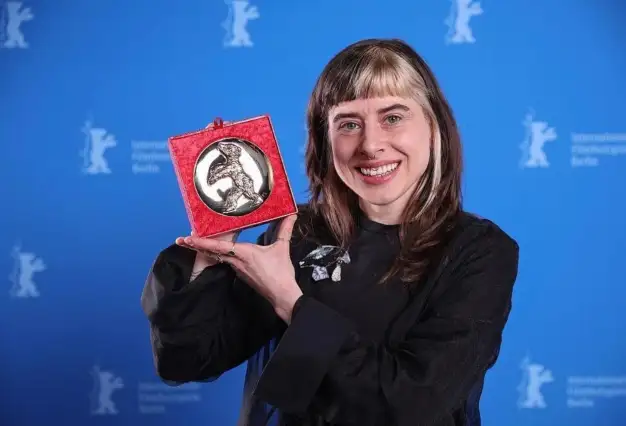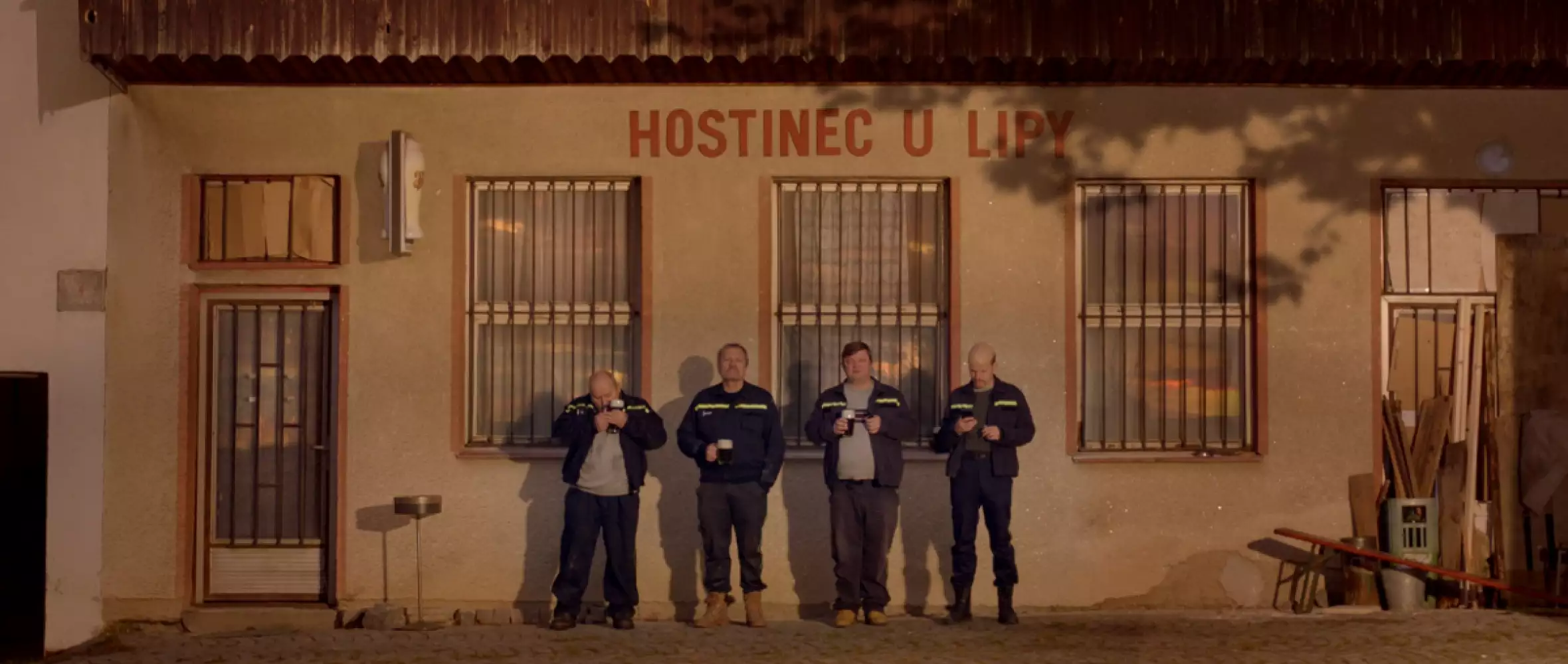
07 February 2022
Czech cinema flexes its muscles at Berlinale
Czech cinema flexes its muscles at Berlinale

Czech moviemaking is putting on a powerful showing at this year’s edition of the prestigious February festival in Berlin. While the debut feature Somewhere Over the Chemtrails marks the return of Czech film to the Panorama section, the animated short Suzie in the Garden continues a long-running string of Czech works in the Generation selection, and in 2022, for the first time ever, a Czech TV series, Suspicion, will have its international premiere in the Berlinale Series section. As if that weren’t enough, a digital restoration of the Czechoslovak New Wave classic Larks on a String, by Jiří Menzel, returns to Berlinale after its award-winning screening here in 1990, following a 30-year ban from cinemas by the Communist regime. And the icing on the cake for the Czech presence at Berlinale is the minority coproduction Beautiful Beings, shot in an Icelandic-Danish-Swedish-Dutch-Czech coproduction.
Article by Jaroslav Kejzlar & Markéta Šantrochová for CZECH FILM Magazine / Spring 2022
Panorama: Somewhere Over the Chemtrails and Beautiful Beings
The fiction feature film Somewhere Over the Chemtrails, director Adam Koloman Rybanský’s debut, taking viewers into the universe of a Czech village, will have its world premiere in the Panorama section of Berlinale this year.
The story centers on two volunteer firefighters: Standa, who is looking forward to the birth of a son, and his older friend Bróňa, who has lost his ability to enjoy life due to the death of his wife. Things take a turn out of the ordinary, however, when a van crashes into a crowd during the annual Easter Fair and the driver flees the scene. People believe it to be a terrorist attack, and the festive mood is replaced by an atmosphere of fear, hatred, and misinformation. The sense of danger pumps new blood into Bróňa’s veins as the fire brigade transforms itself into a militia.
Rybanský is a graduate of the Directing Department at the FAMU film school in Prague. Both of his two short student films — Friendly Sport Meeting (2017) and Home Sleep Home (2018) — focused on village life and the Czech national character. In Somewhere Over the Chemtrails, which is conceived as a dramedy, Rybanský and his cowriter, Lukáš Csicsely (who also worked on Damián Vondrášek’s Frontier), develop these themes into a feature-length film.
Somewhere Over the Chemtrails comes from the young Czech production company Bratři, with Eva Pavlíčková and Pavel Vácha acting as main producers, and FAMU, Czech Television, freeSaM, and Magiclab as coproducers.

Also making its world premiere at Berlinale’s Panorama will be the Icelandic-Danish-Swedish-Dutch-Czech coproduction Beautiful Beings, written and directed by Guðmundur Arnar Guðmundsson.
The film follows Addi, a boy raised by a clairvoyant mother, as his gang of outsiders welcomes a bullied misfit into their midst. Left to their own devices, the boys explore aggression and violence, yet also manage to learn about loyalty and love. As the group’s behavior places them in situations that are increasingly life-threatening, Addi experiences a series of dreamlike visions. Can his newfound intuition guide him and his friends back to a safer path, or will they sink irrevocably into further violence?
Beautiful Beings is Guðmundsson’s second feature film after Heartstone (2016), which made the rounds of many festivals, including Venice and Toronto, and was honored with the European University Award at the 2017 European Film Awards. Like his first film, Beautiful Beings tackles the subject of adolescence.
The film is produced by Anton Máni Svansson of Join Motion Pictures in Iceland, in coproduction with Motor Productions (Denmark), Hobab and Film i Väst (Sweden), Bastide Films (The Netherlands), and Negativ on the Czech side, with producers Pavel Strnad and Petr Oukropec.
The Czech Film Fund supported Beautiful Beings to the tune of € 132,000. The film was also backed by the Icelandic Film Centre, Iceland’s Ministry of Industries and Innovation, the Icelandic National Broadcasting Service RÚV, Sena, the Danish Film Institute, DR, Scanbox, the Swedish Film Institute, Film i Väst, the Netherlands Film Fund, the Netherlands Film Production Incentive, the Nordisk Film & TV Fond, and Eurimages.
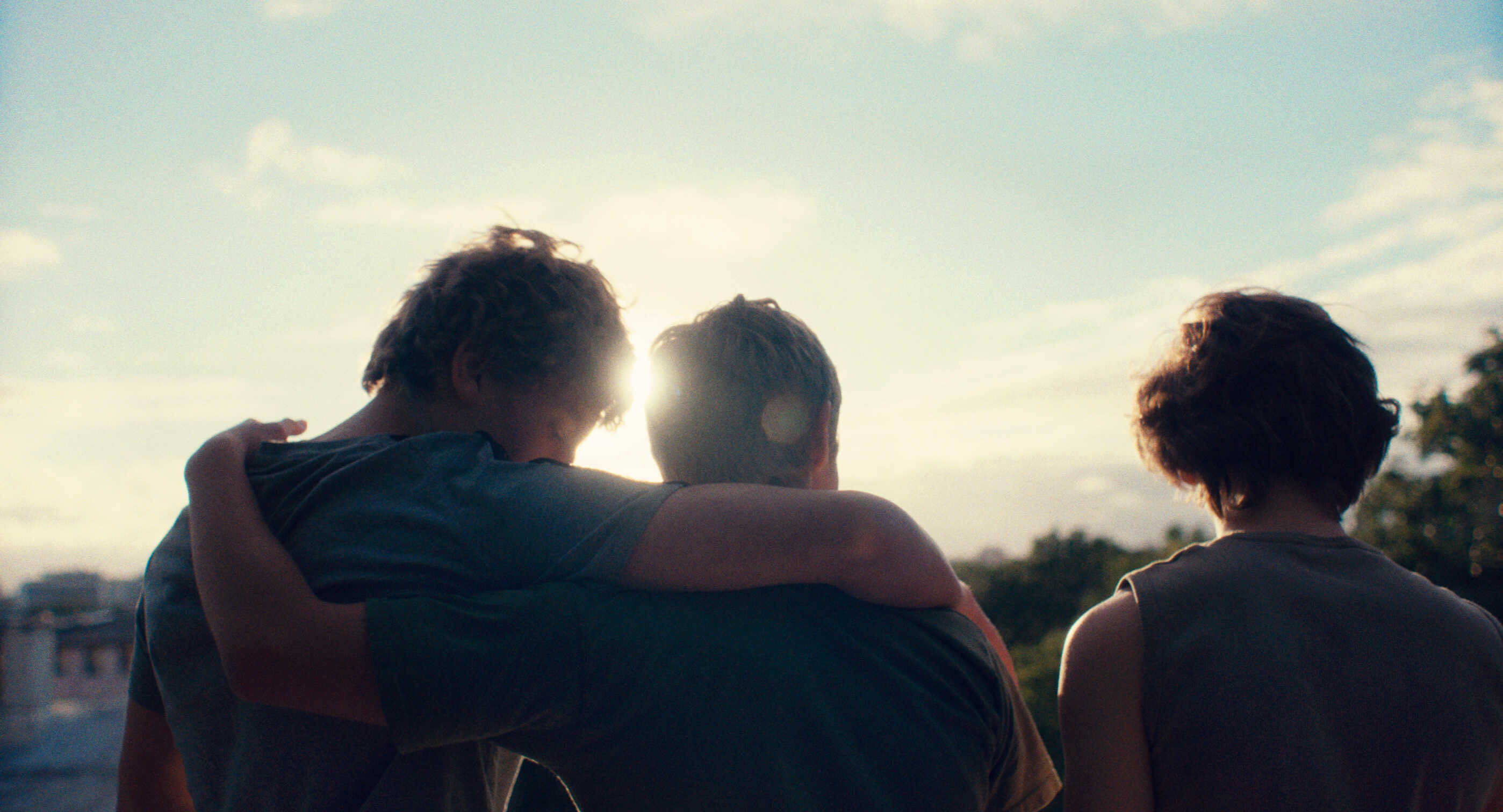
Panorama has its finger on the pulse of contemporary international cinema, zeroing in on explicitly queer, sexy, and edgy cinema. Czech filmmakers are regularly invited to introduce their films in front of the Panorama Audience Jury, which every year since 1999 has given out the Panorama Audience Award to its favorite. The last Czech film to premiere in Panorama was the Jan Gebert documentary When the War Comes (2018, the opening film of Panorama Dokumente).
I, Olga Hepnarova (Petr Kazda, Tomáš Weinreb, 2016) opened the section in 2016, and Daniel’s World (Veronika Lišková, 2014), Kawasaki’s Rose (Jan Hřebejk, 2010), Grandhotel (David Ondříček, 2007), The Landscape (Martin Šulík, 2001), The Spring of Life (Milan Cieslar, 2000), and Hanele (Karel Kachyňa, 2000) were all similarly introduced in Panorama over the last two decades.
Generation Kplus: Suzie in the Garden
Marking the return of Czech cinema to Berlinale’s Generation section, Lucie Sunková will world-premiere her animated short Suzie in the Garden in the Generation Kplus competition. The film, based on a book of the same name by children’s writer Jana Šrámková, tells the story of a little girl who visits a gardening colony outside the city with her mom and dad. One day she meets a black dog and discovers a mysterious garden. Who lives there? And what to do when you find a key on the path but you’re afraid of the person it belongs to?
A screenwriter, artist, director, and animator, Sunková sees Suzie as a dialogue with childhood. “I tried to enter into the thinking of the little girl, to understand her imagination, her fears, and her charming self-centeredness. I tried to create a film that would speak a language understandable to children and at the same time be able to evoke memories of the moments and situations we experienced as a child,” Sunková says.
Sunková is known both as an author of children’s books and as an animator, mainly using painting with oil paints on glass under the camera. Over the last two decades, Sunková has directed several animated shorts, including The Raven (2000), Portrait (2002), and The Tree (2015). She also acted as animation department head on Florence Miailhe’s celebrated animated feature The Crossing (2020), which won the Jury Distinction Award in Annecy’s main competition last year. In addition, she was involved in the Oscar-nominated and Student Oscar-winning animated short Daughter, by Daria Kashcheeva (2019), as well as the animated feature Fritzi - A Revolutionary Tale (2019) and the Fimfarum series.
Sunková’s work on The Tree and The Crossing was backed by Martin Vandas and Alena Vandasová of the established Czech production house MAUR film, who coproduced Suzie in the Garden with Super film of Slovakia. Suzie received € 40,000 in backing for production from the Czech Film Fund.
Czech films have a rich tradition of participation in the Generation Kplus competition. Over the past five years, the section has included The Kite, by Martin Smatana (2019), and Leaf, by Aliona Baranova (2020). The Slovak-Czech film Little Harbour, by Iveta Grófová, won the competition’s Crystal Bear in 2017.
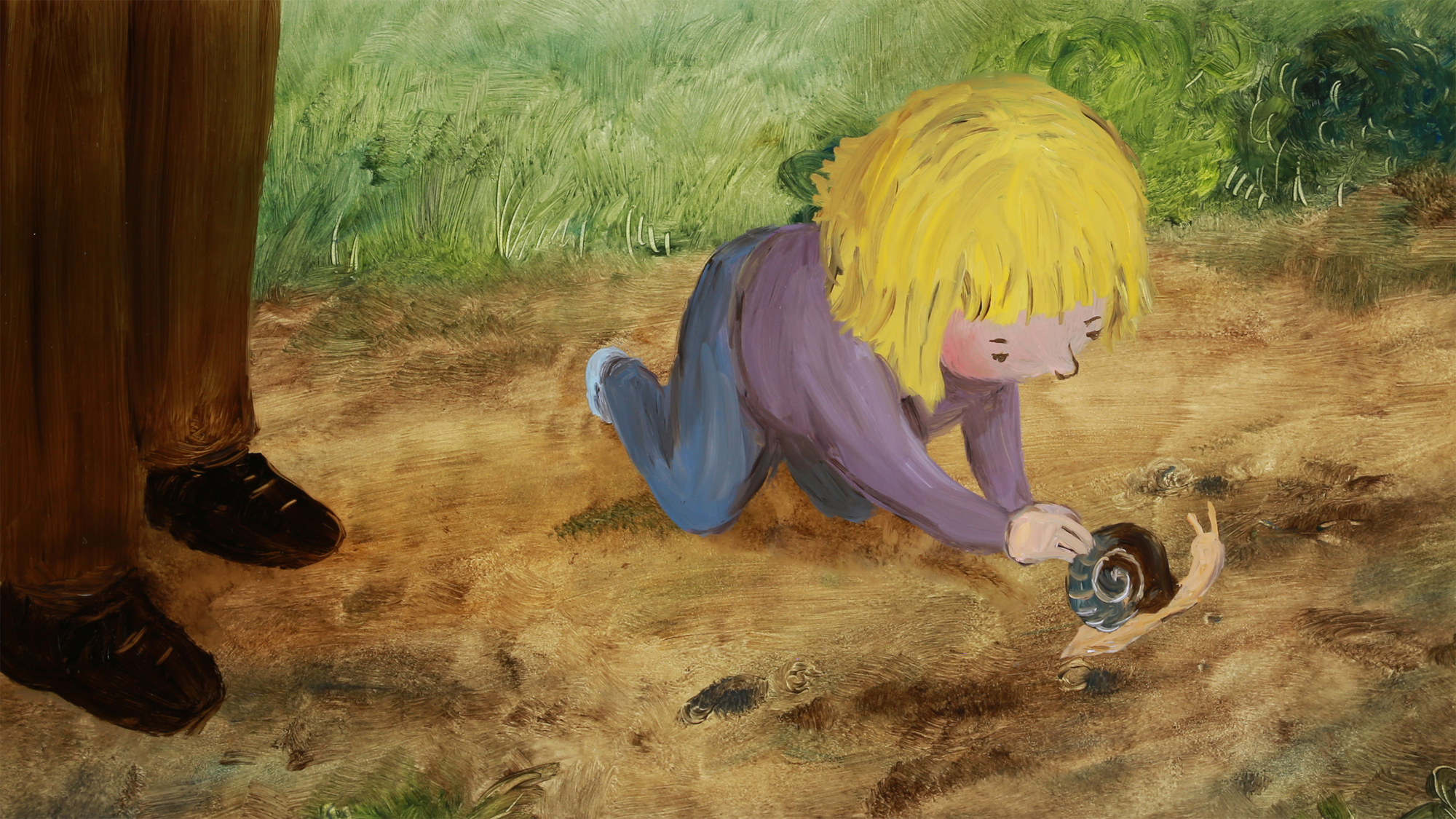
Berlinale Series: Suspicion
Director Michal Blaško and scriptwriter Štěpán Hulík, screening their TV miniseries Suspicion, will be the first Czechs ever to appear in the Berlinale Series section.
Suspicion centers on a nurse named Hana Kučerová, who never smiles and treats her patients poorly. When a patient dies under suspicious circumstances, the public, the media, the police, and her colleagues all believe it’s obvious who the guilty party is.
Slovak-born director Blaško, a graduate of Prague’s FAMU, first garnered attention with his student films Fear (2015), which world-premiered at the San Sebastian IFF, and Atlantis, 2003 (2017), which was selected for Cannes’ Cinéfondation and won the Magnesia Award for Best Student Film at the Czech Lion Awards. Blaško’s feature film debut, Victim (expected 2022), took home the TRT Award for Works in Progress at Karlovy Vary’s industry platform Eastern Promises last year, and was also presented at the MIA Market in Rome.
Suspicion is produced by Czech Television (creative producer Michal Reitler) and Czech firm nutprodukce, with French ARTE G.E.I.E. also on board. Producers Jakub Viktorín, Tomáš Hrubý, and Pavla Janoušková Kubečková of nutprodukce are certainly no strangers to the international scene. Janoušková Kubečková produced the celebrated documentary Brotherhood, by Francesco Montagner (2021), while Hrubý was involved in the successful series Wasteland, by Ivan Zachariáš (2016), and Burning Bush, by Agnieszka Holland (2013), and Viktorín is producing Blaško’s forthcoming drama, Victim. As for Suspicion’s scriptwriter Hulík, he worked on both Wasteland and Burning Bush.
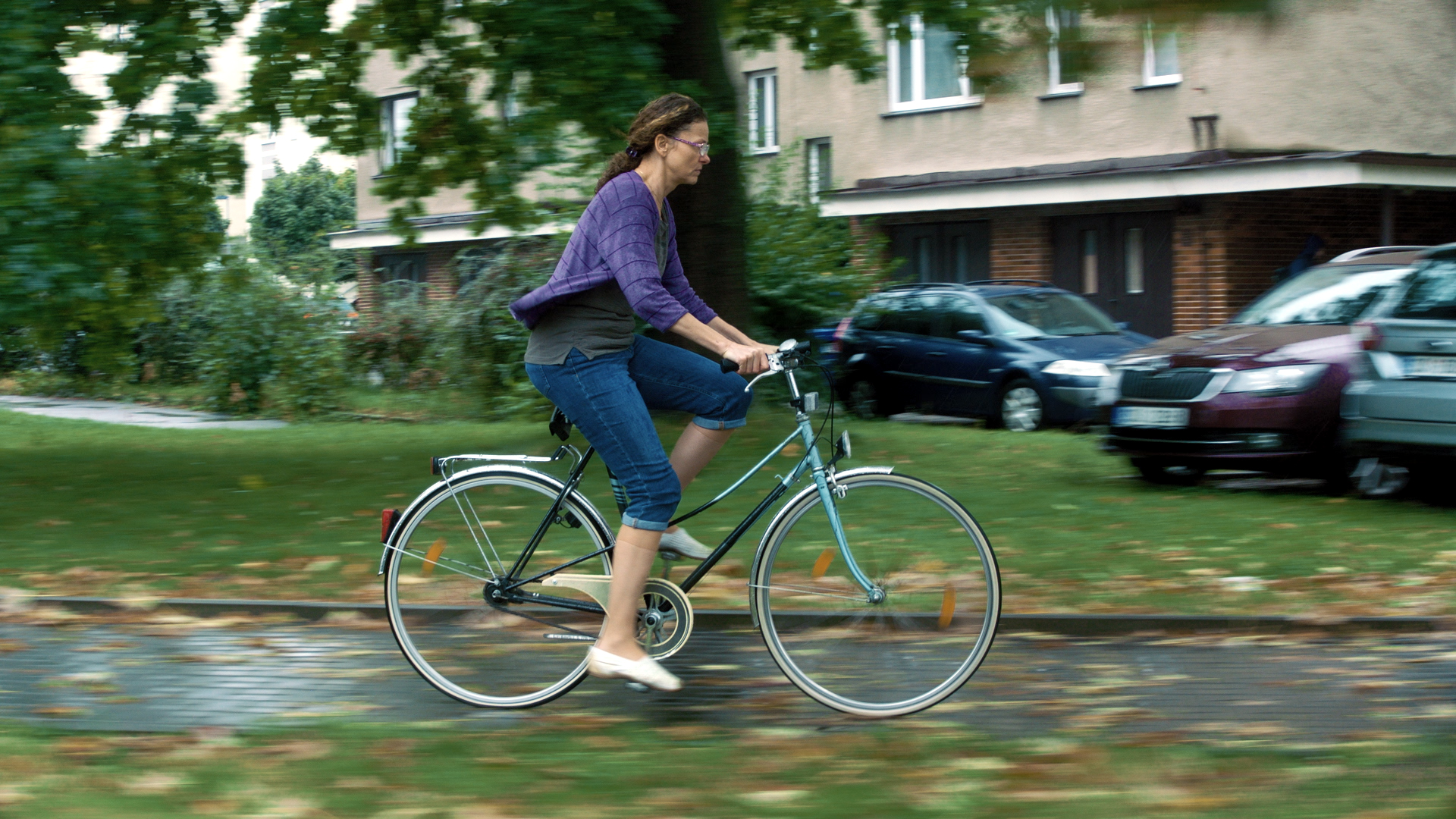
Berlinale Classics: Larks on a String
Another batch of digitally restored film classics and rediscoveries will celebrate world premieres in the Berlinale Classics section. This year the Czech Republic is represented by director Jiří Menzel’s late-’60s classic Larks on a String, celebrating its great comeback to the festival 32 years after winning the Golden Bear.
Menzel’s fourth film, inspired by motifs from the Bohumil Hrabal short story collection Inzerát na dům, ve kterém už nechci bydlet (Mr. Kafka and Other Tales From the Time of the Cult), was approved for production during the Prague Spring in 1968. Larks on a String was a follow-up to the first collaboration between the promising young filmmaker and the successful writer on the Oscar-winning tragicomedy Closely Watched Trains (1966).
Larks on a String is set in the scrapyard of a steelworks where the Communist regime sent politically questionable people for reeducation during the Stalinist era. A former public prosecutor meets the barber Kudla, the young Adventist Pavel, and his beloved Jitka. Meanwhile the supervisor Anděl maintains a watchful eye over everyone.
Due to the shift in politics that occurred with the Soviet invasion of Czechoslovakia in 1968, this satirical take on the political repression of the ’50s was prohibited from distribution, and immediately after its completion in 1969 it was locked away in the proverbial “vault,” where it stayed for the next 20 years. Thus the film’s premiere did not take place until after the end of communism in November 1989.
The restoration of Larks on a String was funded from the donation of Mrs. Milada Kučerová and Mr. Eduard Kučera, and carried out by the Karlovy Vary International Film Festival in collaboration with the Národní filmový archiv, Prague and the Czech Film Fund, in UPP and Soundsquare, in 2021.
The last time the Czech Republic was represented in the Berlinale Classics was the 70th edition of the festival in 2020, when the section introduced the digital restoration of Distant Journey by Alfréd Radok.
